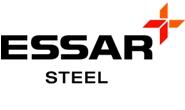Market Segment

May 9, 2016
Essar Steel Algoma in Arrears on Property Tax
Written by Sandy Williams
The city of Sault Ste. Marie wants its property taxes and is asking the court to demand Essar Steel Algoma pay them.
Essar Steel Algoma, failed to make its first 2016 payment of $1.8 million on March 7 and a second payment due May 5.
Algoma, which entered CCAA restructuring last fall, has $14 million in property taxes for 2014-2015 tied up in that legal proceeding. The city expects the 2016 taxes to be paid.
A day before taxes were due in March, Essar Steel Algoma President and CEO Kalyan Ghosh asked Mayor Christian Provenzano to reduce the company’s annual taxes to $3 or $4 million, a cut of 71 to 78 percent. The city refused the request and filed an application with the Ontario Superior court seeking payment of the 2016 first installment. The hearing for the case is scheduled for June 15.
Essar Steel Algoma argues that taxes on industrial properties are much too high. Although the city has low property taxes for residential homes, the business community says the taxes for industry are out of proportion. Currently large industrial properties are taxed at a rate of 5.5 times a similarly valued residential property.
A study by the Sault Ste. Marie Chamber of Commerce found that among six cities in Northern Ontario, the Sault Ste. Marie large industrial occupied municipal rate was 311 percent higher than the lowest rate in the province at North Bay.
“The Sault Ste. Marie large industrial tax rate is up 44 percent since 2007, and the industrial rate has grown 36 percent over the same period,” said Ghosh. “Over the same time frame, the education component for both large industrial and industrial occupied has declined 61 percent and 44 percent respectively. Such increases simply cannot be supported in the best of economic times and must be addressed to ensure the viability and competitive position of the businesses that bear the burden.”
Ghosh argues that the large industrial rate is levied on the three or four employers who contribute the most to the city’s overall base. Essar Steel Algoma employees and retirees alone contribute 28 percent of the residential taxes to the city.
Of the 104 municipalities in Ontario, only 16, including Sault Ste. Marie, have a large industrial tax classification. Ghosh says that Sault Ste. Marie has the largest discrepancy between standard and large industrial tax rates—a practice that Ghosh says is discriminatory against the largest employers.
“Ultimately, the bottom line is that our cost structure must align with that of our competitors and that would put our annual tax payable in the range of $3 million to $4 million per year,” Ghosh said a letter to Mayor Provenzano. “We request an amendment of the tax class structure and a reduction to the tax rates applied to bring Sault Ste. Marie in line with comparable municipalities across Northern Ontario.”
Essar Steel Algoma’s annual property tax bill is approximately $7.1 million.
“The city recognizes that Essar has a right to challenge the taxes it pays and we don’t take issue with Essar challenging that,” Provenzano said. “But there is a process that Essar has to go through to do that, and if as a result, (Essar’s) taxes are reduced, the city will respect that, but in the meantime, they’ve got to pay their tax just like anybody else in the community.”
(Sources: Soo Today and Sault Star)







